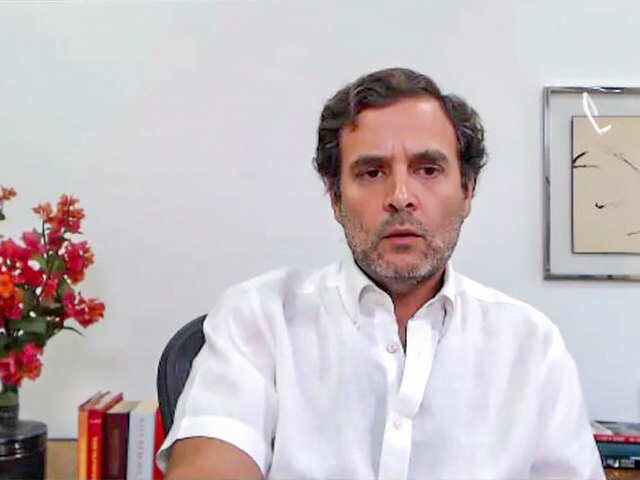New Delhi, May 10: BJP can never be an "individual-centric" party as it is based on ideology, Union minister Nitin Gadkari said, denying allegations that Bharatiya Janata Party has become "Modi-centric".
He also disapproved apprehensions of a fractured mandate and claimed the party will get more seats than the last Lok Sabha polls.
"BJP neither became Atal or Advaniji's party in the past, nor it can ever be only Amit Shah or Narendra Modi's party," he said in an interview to news agency at his residence here.
Stressing "BJP is a party based on ideology," Gadkari said it is wrong to say that "BJP has become Modi-centric."
He, however, said the BJP and Prime Minister Modi are "complementary to each other."
When asked whether the BJP has become 'Modi is BJP and BJP is Modi' on the lines of 'Indira is India and India is Indira' slogan given by then Congress president D K Barooah during the emergency in 1976, Gadkari said, the party can never be "individual-centric".
"BJP as a party can never be individual-centric. It is an ideology-based party. There can be no 'family-rule' in the BJP. It is a wrong notion that the party has become Modi-centric. Party's parliamentary board takes all the decisions," he said.
He reasoned that the party and its leader are complementary to each other.
"Elections cannot be won if a party is strong but its leader is weak ... same can be said if a leader is strong and the party is weak ... But yes, a popular leader do come at the forefront naturally, " Gadkari stressed.
He rubbished the claims that BJP is fighting polls on nationalism instead of its work or achievement in the past five years and said people will vote the party back to power with full majority supporting its development agenda.
"Opposition has tried to bring in the poison of casteism and communalism in the polls to derail the BJP's development agenda, but I am sure people will be with us and we will form the government with full majority," he stressed.
He said for the BJP, nationalism is not an issue but "our soul".
"Nationalism is our soul. Good administration and development is our mission... Roti, kapda and makan (food, clothes and shelter) for the poor, exploited and backwards in the society is our ideal," Gadkari said.
He said in every election, discourse on the nation's security was there. "We haven't made this an issue".
Defending the Prime Minister for often mentioning about Pakistan and its army in his addresses, Gadkari said the media has raised some questions after Balakot strike which have to be answered.
"Recently, India has to give reply to Pakistan against its terror activities ... when these issues came ... It is natural that discussions on internal and external security issue will come into fore and hence we have not made nationalism an issue," the BJP leader said.
Days after the Pulwama attack in south Kashmir which claimed the lives of 40 CRPF personnel, India conducted air strikes on Jaish-e-Muhammed terror training camps in Balakot, Pakistan, in February.
He also denied that the Pulwama attack was the result of intelligence failure.
"No country sees the terror acts as a failure of intelligence ... it is a long battle. Such incidents have also happened in other countries, including the US, Germany and France. It is easy to call them intelligence failures ... intelligence is not divine set up but manual ... As far as discussions on it within the government are concerned they are secret," he reasoned.
On being asked that some pollsters are predicting a fractured mandate, the Union minister for Road Transport & Highways said the BJP will form the government after the polls.
"BJP will get more seats than the last polls and NDA constituents will also increase their seats, hence the party will form the government."






Comments
Add new comment